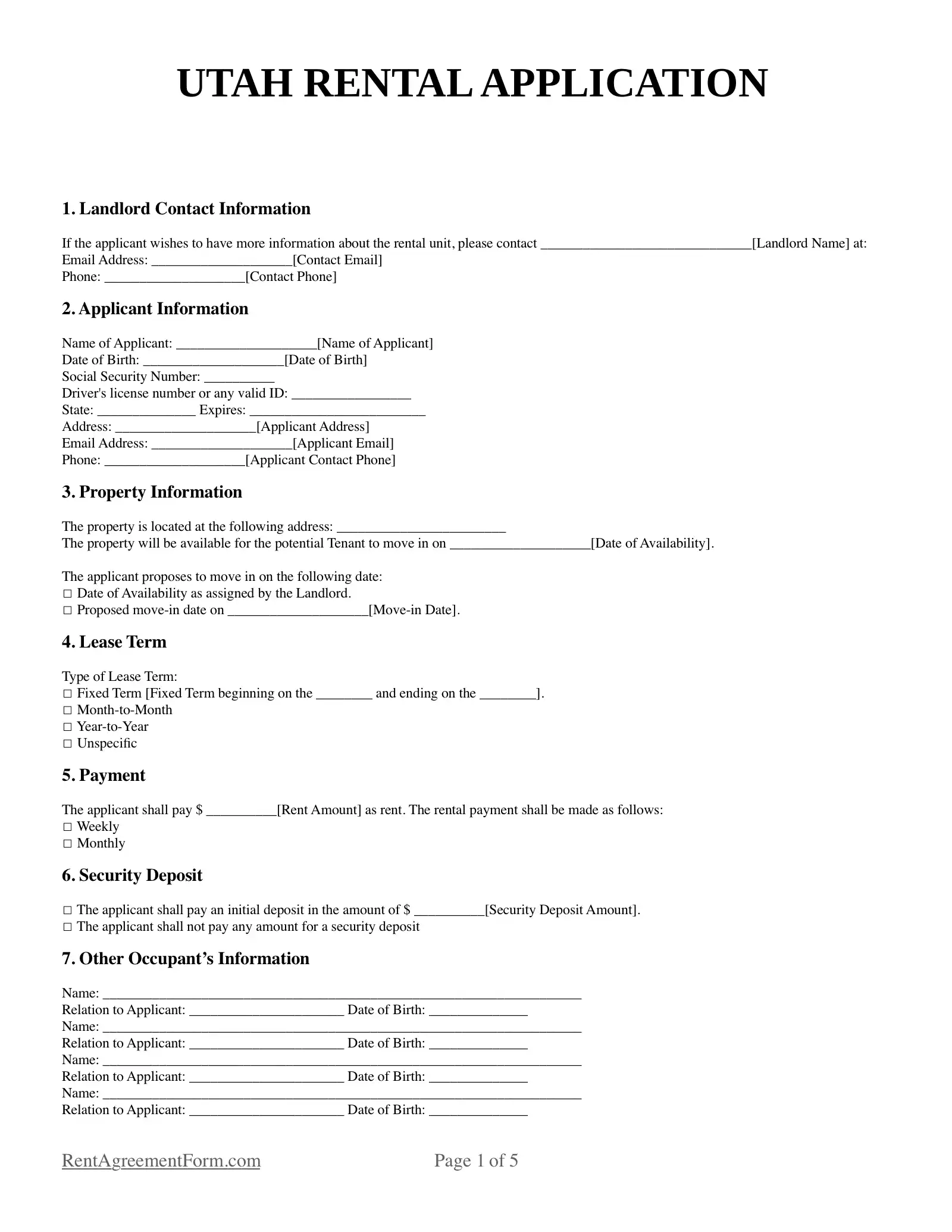Utah Rental Application Form
Utah is a state known for its mountains, skiing, and snowfall. This beautiful state has low crime rates and high quality of life, making it an ideal place to live. If you’re planning to move here, you’ll need to fill out a residential application form.
A residential application form is a simple document that provides information about a tenant and is used by landlords for screening purposes. It is the first step that a tenant undertakes to show their interest in a property or make a bid for a rental property.
A landlord will receive multiple applications, and they can choose which tenant is best suited for the occupancy of their property. This application helps them make an informed decision.
In the application, the tenant must mention their name as well as details about their income and employment status. Credit scores and relevant background information like criminal history or any prior eviction record must also be disclosed.
It is important to know your rights and responsibilities as a renter by going through the Federal Fair Housing Act. This is a landmark law set in place to prohibit landlords from discriminating against potential tenants based on religion, race, disability, gender, nationality, or familial status.

Rental Application Fee in Utah
Laws regarding rental application fees differ from state to state. In Utah, there is no maximum application fee or limit to what a landlord can charge when a tenant applies for a lease.
The landlord uses the rental application fee to perform background checks on interested and potential tenants. Even if an application is rejected, the fee is non-refundable since the money is used to process the screening and is not based on the approval of a lease application.
Utah Security Deposits for Rental Applications
If your rental application looks good, and the landlord accepts your request for occupancy, you can move on to paying the security deposit. This is essentially an advanced fee borne by the tenant before moving in.
The landlord uses the security deposit to safeguard themselves in the event that the tenant cannot pay rent or has caused damage to the property that requires repair. It can also be used to clean the leased property and to pay for costs resulting from breaches in the lease agreement.
The state of Utah has no limit on how much security deposit a landlord can ask for.
Generally, however, security deposits are equal to one to two months’ worth of rent.
Unlike some states, the state government has no specific rules on how landlords must keep the security deposit (Utah Code § 57-17).